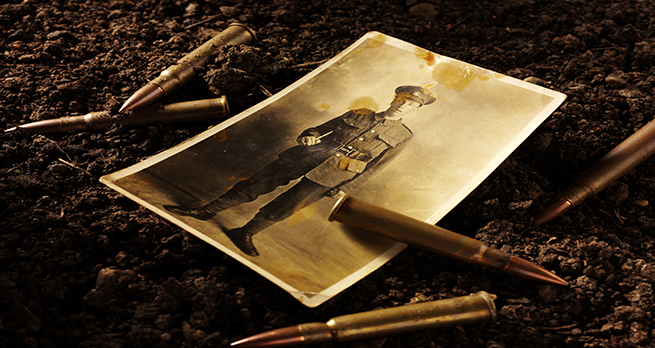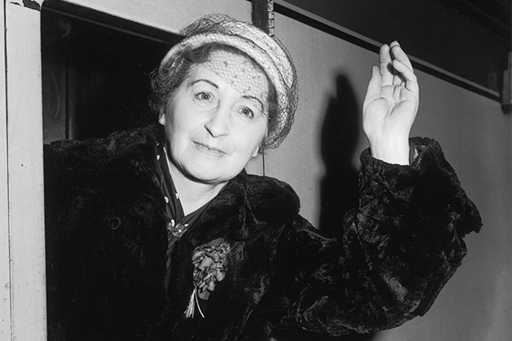3.1.3 Awaiting a telegram
Read or listen to the following passage from Testament of Youth, read by an actress. In it, Vera Brittain describes her anxious wait to hear news of her brother Edward, before she finally receives a telegram announcing his death.
By the following Saturday we had still heard nothing of Edward. The interval usually allowed for news of casualties after a battle was seldom as long as this, and I began, with an artificial sense of lightness unaccompanied by real conviction, to think that there was perhaps, after all, no news to come. I had just announced to my father, as we sat over tea in the dining room, that I must really do up Edward’s papers and take them to the post office before it closed for the weekend, when there came the sudden loud clattering at the front-door knocker that always meant a telegram.
For a moment I felt that my legs would not carry me, but they behaved quite normally as I got up and went to the door. I knew what was in the telegram – I had known for a week – but because the persistent hopefulness of the human heart refuses to allow intuitive certainty to persuade the reason of that which it knows, I opened and read it in a tearing anguish of suspense.
- ‘Regret to inform you Captain E. H. Brittain M.C. killed in action Italy June 15’
“”‘No answer’, I told the boy mechanically, and handed the telegram to my father, who had followed me into the hall. As we went back into the dining room I saw, as though I had never seen them before, the bowl of blue delphiniums on the table; their intense colour, vivid, ethereal, seemed too radiant for earthly flowers. […]
Long after the family had gone to bed and the world had grown silent, I crept into the dining-room to be alone with Edward’s portrait. Carefully closing the door, I turned on the light and looked at the pale, pictured face, so dignified, so steadfast, so tragically mature. He had been through so much – far, far more than those beloved friends who had died at an earlier stage of the interminable War, leaving him alone to mourn their loss. Fate might have allowed him the sorry compensation of survival, the chance to make his lovely music in honour of their memory. It seemed indeed the last irony that he should have been killed by the countrymen of Fritz Keisler, the violinist whom of all others he had most greatly admired.
And suddenly, as I remembered all the dear afternoons and evenings when I had followed him on the piano as he played his violin, the sad searching eyes of the portrait were more than I could bear, and falling on my knees before it I began to cry ‘Edward! Oh, Edward!’ in dazed repetition, as though my persistent crying and calling would somehow bring him back.

